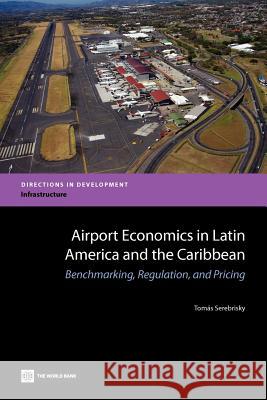Airport Economics in Latin America and the Caribbean: Benchmarking, Regulation, and Pricing » książka
Airport Economics in Latin America and the Caribbean: Benchmarking, Regulation, and Pricing
ISBN-13: 9780821389775 / Angielski / Miękka / 2011 / 274 str.
Traditionally, air transport infrastructure in Latin America and the Caribbean (LAC) was exclusively under government ownership and management. Starting in the late 1990s, several Latin American countries implemented innovative public-private partnerships (PPP) that transferred the financing and management of air transport sector infrastructure to the private sector. This book presents the findings of a first-ever, comprehensive study of how LAC region airports have evolved during this notable period of transition in airport ownership. It is an unbiased, positive analysis of what happened, rather than a normative analysis of what should be done to reform the airport sector or to attract private participation. It takes the first step in response to the need for more conclusive information about the influence of airport ownership on economic performance. The book is centered around the study of three dimensions of performance: productive efficiency, institutional set up for the governance of the sector, and financing of airport PPPs. Using rigorous analytical tools, this book answer a series of key questions to evaluate the introduction of private sector participation in the Latin American airport sector: Are LAC airports technically efficient? How has efficiency evolved in the last decade? Are privately-run airports more efficient than state-operated airports? How do independent regulators compare with government agencies in accountability, transparency, and autonomy? How has the level and structure of aeronautical tariffs changed in recent years? The main audience of this book are air transport practitioners, transport regulators, decisionmakers in transport ministries, and PPP units and academics.











